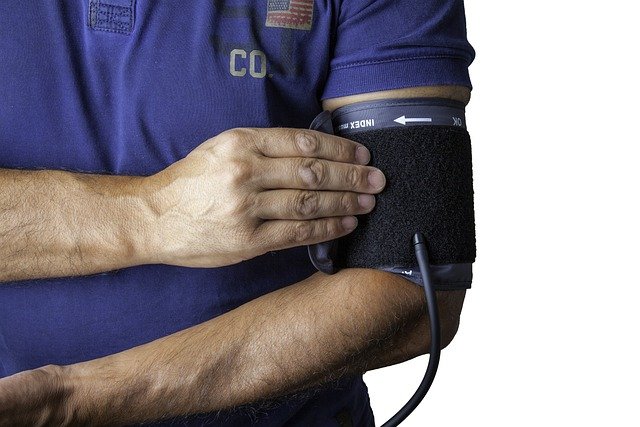Explore 5 Medications That Could Cause Kidney Damage and What to Know About Them
Certain medications can sometimes affect kidney function, especially with long-term use or pre-existing conditions. This article explores five types of medications that may pose kidney risks, what factors increase vulnerability, and why medical guidance is essential for safety.

Many people take medications daily without realizing that some drugs can affect kidney function over time. The kidneys are responsible for filtering medications and their byproducts from the bloodstream, and certain drugs can place excessive strain on these organs. While most medications are safe when used as directed, understanding potential risks helps you make informed decisions about your health and work effectively with your healthcare provider.
Explore 5 Medications That Could Cause Kidney Damage Explained
Several medication categories have been associated with potential kidney concerns. Nonsteroidal anti-inflammatory drugs, commonly known as NSAIDs, include ibuprofen and naproxen. When used frequently or in high doses, these pain relievers can reduce blood flow to the kidneys and potentially cause acute kidney injury. Proton pump inhibitors, used to treat acid reflux and heartburn, have been linked to chronic kidney disease when used long-term. Certain antibiotics, particularly aminoglycosides and vancomycin, can be toxic to kidney cells when administered in high doses or for extended periods. ACE inhibitors and ARBs, while often prescribed to protect kidneys in people with diabetes or high blood pressure, can sometimes cause kidney function changes in certain individuals. Finally, some diuretics, or water pills, can lead to dehydration and electrolyte imbalances that stress the kidneys.
How Some Medications May Affect Kidney Function Over Time
Medications can impact kidney health through various mechanisms. Some drugs directly damage kidney cells, while others reduce blood flow to these organs or cause inflammation. Chronic use of certain medications may lead to gradual decline in kidney function that goes unnoticed until significant damage has occurred. The kidneys filter approximately 200 quarts of blood daily, processing medications and their metabolites. When drugs accumulate or are not properly eliminated, they can create toxic effects. Some medications cause the kidneys to work harder, leading to increased pressure within the filtering units called nephrons. Over months or years, this additional strain can result in scarring and reduced filtering capacity. Dehydration caused by certain drugs compounds these effects by concentrating potentially harmful substances in the kidneys.
Risk Factors That Increase the Chance of Kidney Damage
Certain conditions and circumstances make individuals more vulnerable to medication-related kidney problems. Pre-existing kidney disease significantly increases risk, as compromised kidneys have less reserve capacity to handle medication stress. Diabetes and high blood pressure are leading causes of kidney disease and also heighten susceptibility to drug-induced kidney injury. Older adults face greater risk due to age-related decline in kidney function and the likelihood of taking multiple medications simultaneously. Dehydration reduces the kidneys’ ability to flush out medications effectively. Taking multiple drugs that affect the kidneys, a situation called polypharmacy, multiplies potential harm. People with heart failure, liver disease, or those who have experienced previous kidney injury should exercise particular caution. Additionally, using medications at higher than recommended doses or for longer than prescribed periods increases risk substantially.
The Importance of Consulting a Doctor Before Using Medication
Speaking with a healthcare provider before starting any new medication is essential for kidney protection. Doctors can assess your individual risk factors and determine whether a particular drug is appropriate for your situation. They may recommend alternative medications with less kidney impact or adjust dosages based on your current kidney function. Healthcare providers can also identify potential interactions between medications that might increase kidney risk. Self-medicating with over-the-counter drugs, particularly pain relievers, can be dangerous for those with underlying health conditions. Your doctor can order baseline kidney function tests before starting certain medications and establish a monitoring schedule. This proactive approach allows for early detection of any changes in kidney health. Pharmacists also serve as valuable resources for understanding medication risks and proper usage guidelines. Never discontinue prescribed medications without medical guidance, as this can cause other serious health complications.
How Regular Checkups Help Monitor Kidney Health and Prevent Issues
Routine medical appointments and laboratory testing are critical for detecting kidney problems early. Blood tests measuring creatinine and calculating estimated glomerular filtration rate provide insight into how well kidneys are filtering waste. Urine tests can reveal protein or blood in the urine, which may indicate kidney damage. For individuals taking medications known to affect kidney function, doctors typically recommend testing every three to six months. Regular monitoring allows healthcare providers to catch declining kidney function before symptoms appear, as kidney disease often progresses silently. Early detection enables timely interventions, such as medication adjustments, dietary changes, or increased hydration. During checkups, doctors review all medications and supplements to identify potential kidney risks. They can also assess blood pressure and blood sugar control, both crucial for kidney health. Establishing a relationship with a primary care provider ensures continuity of care and comprehensive health management. Keeping a current list of all medications, including over-the-counter drugs and supplements, helps your healthcare team make informed decisions about your kidney health.
Practical Steps to Protect Your Kidneys While Taking Medications
Several strategies can help minimize medication-related kidney risks. Stay well-hydrated by drinking adequate water throughout the day, unless your doctor has recommended fluid restrictions. Use the lowest effective dose of medications for the shortest time necessary, particularly with over-the-counter pain relievers. Avoid combining multiple drugs that can affect the kidneys without medical supervision. Inform all your healthcare providers about every medication and supplement you take to prevent harmful interactions. Follow dosing instructions precisely and never exceed recommended amounts. Limit alcohol consumption, as it can compound kidney stress when combined with certain medications. Maintain healthy lifestyle habits including balanced nutrition, regular exercise, and adequate sleep to support overall kidney function. Be alert for warning signs of kidney problems such as changes in urination patterns, swelling in the legs or ankles, persistent fatigue, or unexplained nausea. Report any concerning symptoms to your healthcare provider promptly.
Understanding the relationship between medications and kidney health empowers you to take an active role in protecting these vital organs. While many drugs carry some level of kidney risk, this does not mean they should be avoided entirely. The key lies in informed decision-making, appropriate monitoring, and open communication with healthcare providers. By staying vigilant about medication use and maintaining regular medical care, you can minimize risks while benefiting from necessary treatments. Remember that individual circumstances vary greatly, and personalized medical advice always takes precedence over general information.
This article is for informational purposes only and should not be considered medical advice. Please consult a qualified healthcare professional for personalized guidance and treatment.




